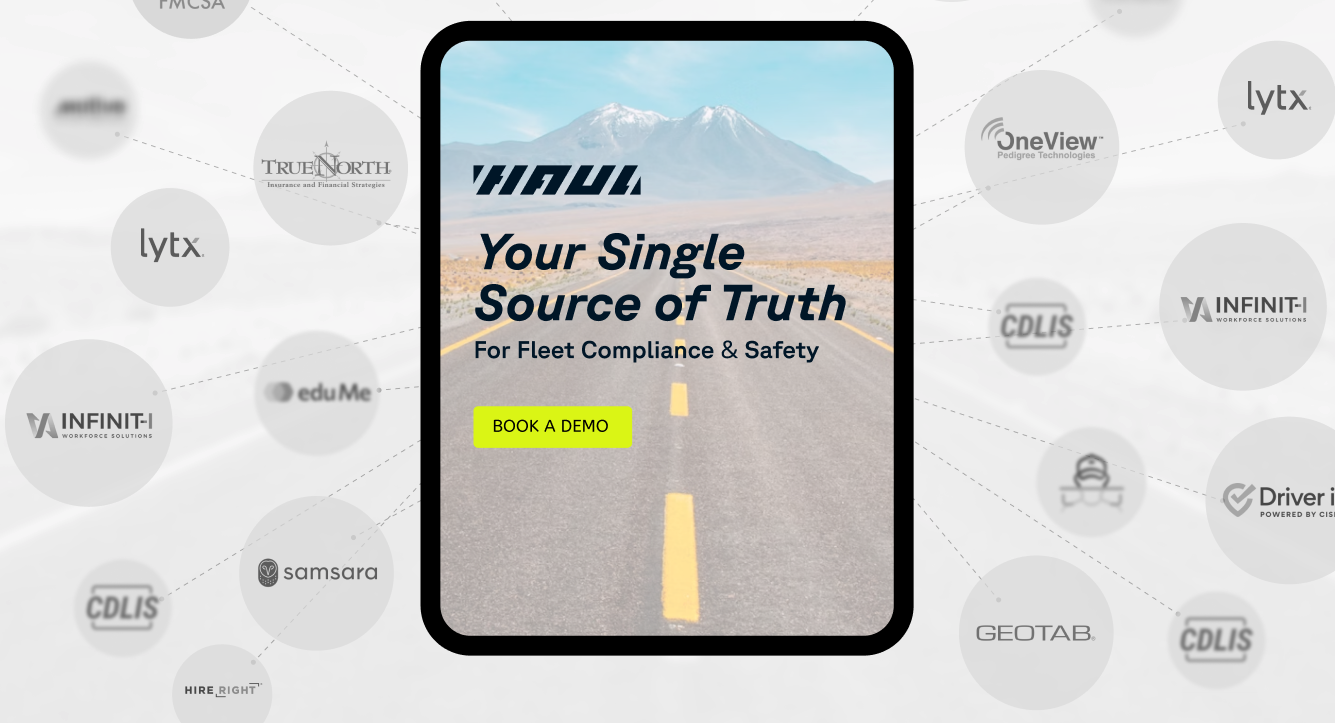The Future of Trucking: AI's Role

The trucking industry is on the cusp of a revolution. Artificial Intelligence (AI) is the driving force behind this transformation, promising to reshape the future of trucking.
AI's role in trucking extends beyond automation. It's about optimizing operations, enhancing safety, and streamlining compliance. It's about leveraging real-time data for informed decision-making.
But what does this mean for fleet managers, logistics directors, and risk management officers? How will AI impact their roles and the industry at large?
This article explores these questions, delving into the transformative impact of AI on trucking. It's time to gear up for a journey into the future of trucking, powered by AI.
AI's Impact on Fleet Management and Logistics
AI technologies are revolutionizing fleet management and logistics. They offer new possibilities for operational efficiency and transparency. Fleet managers now have access to real-time insights, enhancing decision-making capabilities.
In logistics, AI systems improve delivery accuracy and customer satisfaction. They foster strong partnerships by ensuring transparency in operations. This transformation is crucial for maintaining a competitive edge in the industry.

Optimizing Route Planning with AI
AI optimizes route planning, reducing unnecessary fuel consumption. It analyzes traffic patterns and weather conditions for efficient routing. This results in significant cost savings for fleet operators.
Enhancing Safety with Advanced Driver-Assist Systems
Safety is a top priority in trucking. AI-powered Advanced Driver-Assist Systems (ADAS) enhance this by minimizing human errors. These systems alert drivers to potential hazards, preventing accidents.
Streamlining Compliance and Risk Management
AI streamlines compliance and risk management through automation. It ensures adherence to regulations like ELD mandates, reducing violations. Predictive risk assessments help mitigate potential issues before they arise.

Real-Time Data Integration and Decision Making
AI plays a pivotal role in integrating real-time data, providing valuable insights. Fleet managers benefit from immediate alerts and updates, enhancing operational control. This capability supports informed, data-driven decisions.
By unifying data from various sources, AI boosts decision-making efficiency. It enhances responsiveness to market changes and unexpected events. This dynamic approach strengthens logistics operations significantly.
AI in Predictive Maintenance
AI contributes to predictive maintenance, reducing unplanned downtime. By analyzing performance data, it forecasts potential equipment failures. This proactive strategy results in better resource allocation and cost control.
Predictive maintenance extends the lifespan of fleet vehicles. It minimizes repair costs and maintenance frequency. This enables fleet managers to allocate resources more effectively.
AI for Improved Decision-Making and Efficiency
AI facilitates improved decision-making by offering comprehensive data analysis. It identifies patterns and trends that may go unnoticed otherwise. Such insights empower fleet managers to optimize operations.
Efficiency gains are a direct result of AI-driven decisions. With accurate forecasts and streamlined processes, logistics become more effective. This ensures that companies can meet demands promptly and cost-effectively.
The Human Element: AI's Impact on Truck Drivers
The rise of AI in trucking raises concerns about drivers' roles. While AI enhances efficiency, human expertise remains essential. Truck drivers bring adaptability and decision-making that technology cannot replicate fully.
AI aims to support, not replace, truck drivers. By reducing mundane tasks, AI allows drivers to focus on critical aspects. This partnership improves overall safety and job satisfaction.
Will AI Replace Truck Drivers?
The fear of AI replacing truck drivers is common. Yet, AI's role is more about assistance than replacement. It augments human abilities rather than eliminating them.
AI handles routine tasks, freeing drivers for more nuanced responsibilities. This collaborative effort promises enhanced performance and safety on the road.
Training and Skill Development for AI-Driven Fleets
Adopting AI necessitates new skills for today’s drivers. Training programs are crucial in this transition. Drivers equipped with AI knowledge enhance fleet operations.
Skill development ensures drivers stay relevant in AI-driven logistics. A focus on continual learning boosts confidence and career opportunities. Embracing education secures drivers' future roles in the industry.
Looking Ahead: The Future of Trucking Automation
AI is reshaping the trucking industry's future. Its ongoing advancements promise innovation and efficiency. The integration of AI continues to evolve, creating exciting possibilities.
Fleet managers anticipate a more streamlined and responsive industry. AI's influence extends to every facet of trucking, suggesting transformative changes ahead. Remaining adaptable and open to change is crucial.

The Road to Autonomous Trucking
Autonomous trucking remains a topic of intense discussion. AI technology is moving toward self-driving capabilities. While not yet widespread, its potential is immense.
The industry prepares for gradual implementation. Autonomous trucks will likely operate alongside human-driven ones. This transition phase requires strategic planning and foresight.
Balancing AI Automation with Human Oversight
Balancing automation and human input is essential in AI-driven trucking. Technology can handle many tasks, but human insight is irreplaceable. Effective management involves blending both elements.
Human oversight ensures safety and ethical AI use. Ensuring transparency in AI operations builds stakeholder trust. This balanced approach fosters a harmonious tech-human partnership in trucking.
Conclusion: Embracing AI in Trucking
AI's role in trucking is undeniably transformative. Embracing these changes is vital for staying competitive and efficient. With AI, the industry's future holds great promise and potential.

